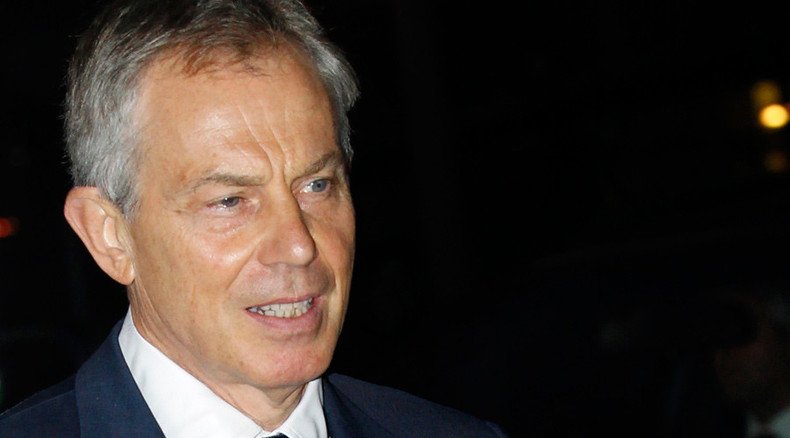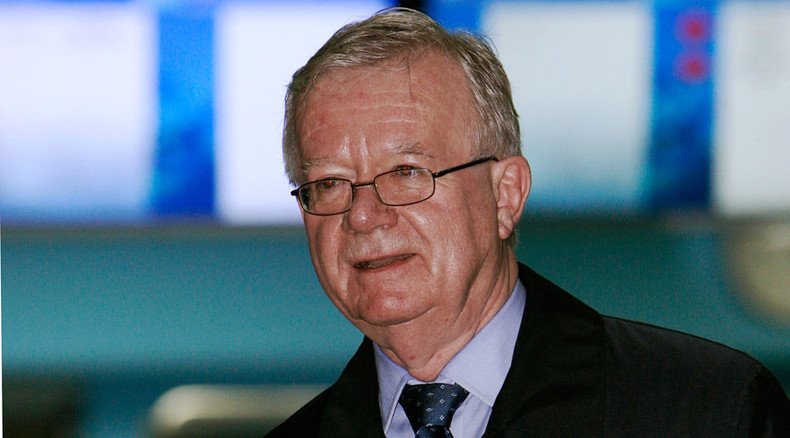Tony Blair holds up Iraq inquiry report over tough criticism?

The scandal surrounding the war in Iraq, unleashed by the US in 2003 with the support of its UK ally, has never gone away. In the UK it has been compounded by an inordinate delay in the publication of the findings of the official inquiry into the war.
Chaired by retired civil servant, Sir John Chilcot, the inquiry was set up in 2009 by former Prime Minister Gordon Brown. Its overriding aim upon inception was to answer, once and for all, the lingering questions over Britain’s involvement in what undoubtedly qualifies as one of the most disastrous wars in which the country has ever been involved.
British Prime Minister Tony Blair, whose name will forever be inextricably linked to this war and its aftermath, took the decision to follow his US counterpart, George W Bush, to Baghdad on the basis of intelligence that turned out to be false, claiming that Saddam had WMD and posed a clear and present danger to his neighbors and the stability of the region. Indeed, many believe that the intelligence used to justify the war was not only false it was fabricated, concocted to conceal the war’s real objective – namely regime change and seizing control of Iraq’s massive oil reserves.
Despite not being given the legal powers to either compel witnesses to appear in front of the inquiry or recommend legal prosecutions in instances where the inquiry adjudged the evidence justified them, Chilcot questioned dozens of people over the two years in which it sat from 2009-2011. Everyone from Tony Blair to the most junior civil servant during his government was questioned during the inquiries deliberations, along with senior military personnel and assorted functionaries.
Considering that this phase of the inquiry ended four years ago, the lack of a final report has brought the entire process – at a cost to the British taxpayer of millions of pounds and counting – into disrepute. Worse, it has completely destroyed any confidence the process may once have enjoyed from the British public over the determination and ability of Sir John Chilcot and his team to uncover the truth.
The reason cited by Chilcot - this former top government functionary civil and later privy counselor - for the inordinate delay in completing his deliberations has been the delay in gathering the responses from those witnesses who have come in for criticism in his report. Known as the Maxwellization process, it enshrines the right of witnesses who have been criticized in an official report to receive advance notice in order to allow them to rebut the criticism prior to the report being published.
The problem is that Sir John Chilcot failed to set a time limit on this process, with the result that it has allowed witnesses to draw the process out to the point where it has become a national scandal. In this regard, there is a strong and growing consensus that Tony Blair is the witness primarily responsible for the ensuing delay, doing so in response to the severe criticism that is thought to be in the report of his role and decision to take the country to war.

No one will be surprised here, what with Blair’s zeal in involving the UK in military interventions around the world during his time as prime minister only matched by his arrogant disregard for the human suffering involved. When, during his appearance at the inquiry, for example, he was offered the opportunity by Chilcot to apologize for the loss of life incurred during and as a result of the war, Blair refused.
Just to be clear, the number of Iraqis killed, injured, or whose lives were devastated either during the war, the occupation that followed, and up to the present day due to the sectarian violence and terrorism that is a daily occurrence across most of the country, is of biblical magnitude. Add to this the 179 British soldiers killed and a further 6,000 injured, many of those seriously, and you don’t have to be a genius to understand why Blair is so loathed.
Indeed, pushing the low esteem in which the former British prime minister is held even lower is the fact that since leaving political office, Blair has gone on to amass a mountain of money in return for his services as a public speaker and political advisor and consultant to assorted oil companies, international banks, and various governments - some of them of them of the decidedly unsavory kind.
He has turned into a veritable Crassus, driven by money with scant regard for where or how he gets his hands on it.
Meanwhile, as he flies around the world on a luxury private jet, the families of some of the British soldiers killed in Iraq have gone as far as threatening legal action if the Chilcot report resulting from the inquiry into the war in Iraq is not published by the end of 2015. Just think about that – people whose sons, husbands, and brothers were killed after being sent by Tony Blair to Iraq to fight a war that many – including former UN Secretary-General Kofi Annan - believe was unleashed in violation of international law, have been forced to resort to the courts in order to force the publication of an inquiry into the war that they believe is being delayed by the man responsible for it.
The dictum that justice delayed is justice denied is accurate when it comes to Iraq. The chaos and carnage resulting from this disastrous war and occupation will follow Tony Blair to the grave. However a growing number around the world believe that it should also follow him into the dock at the International Criminal Court at The Hague.
The statements, views and opinions expressed in this column are solely those of the author and do not necessarily represent those of RT.
LISTEN MORE:
The statements, views and opinions expressed in this column are solely those of the author and do not necessarily represent those of RT.













